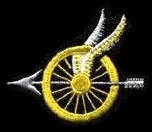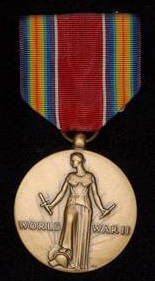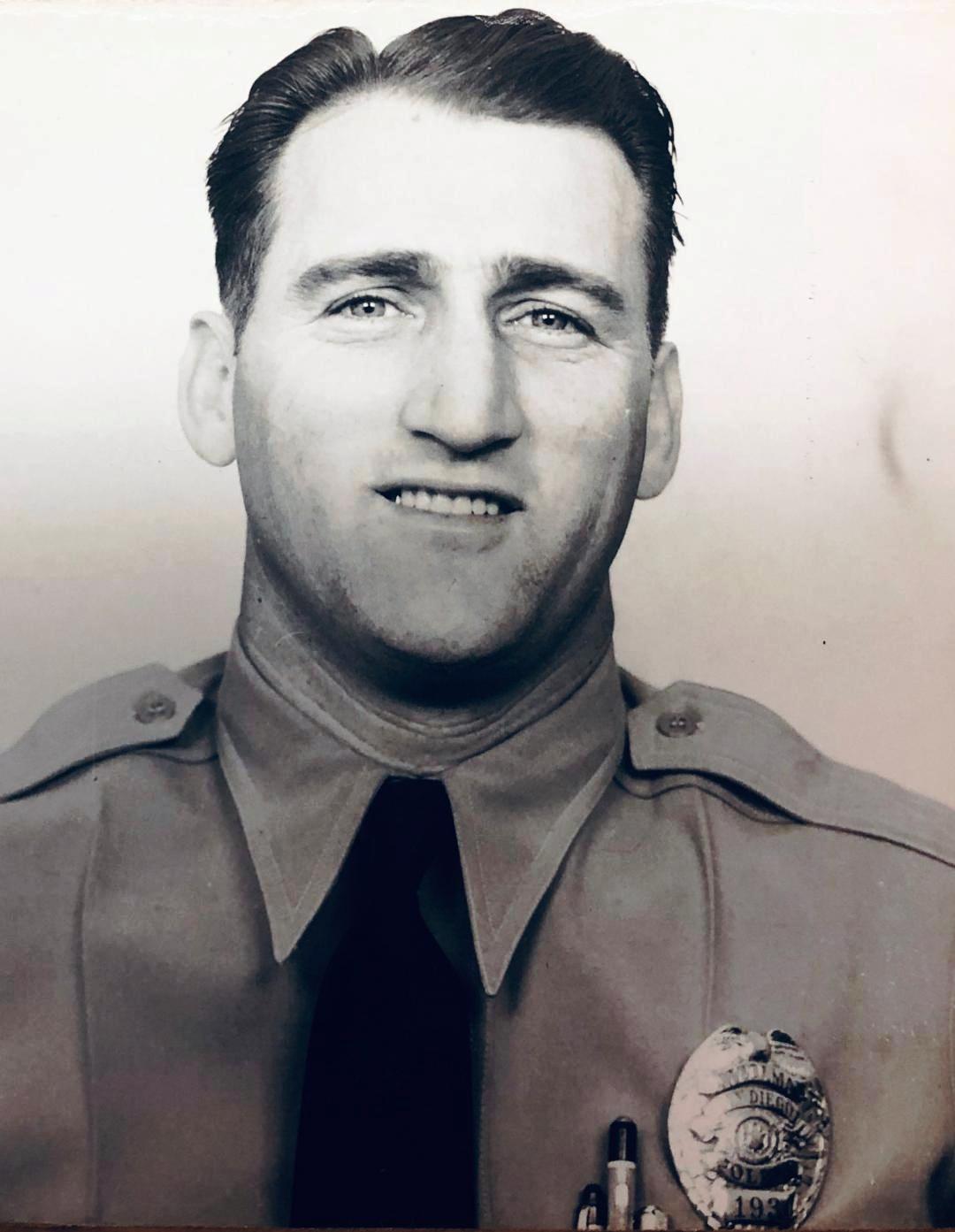MOTORCYCLE OFFICER WILLIAM NETTLES
BADGE 193 & 230
SDPD 11/17/1941 - 08/05/1971
08/06/1916 - 02/09/1999
San Diego Union-Tribune, The (CA) - February 14, 1999
Deceased Name: William Nettles, 82 top athlete, retired San Diego police officer
To rush-hour motorists fleeing the core of San Diego in the 1950s, William Nettles was more than an animated traffic cop. He was a human whistle stop.
Generating enough lung power to simulate an official whistle, the San Diego police officer was as much in command on city streets as he had been more than a decade earlier on the San Diego State College pitcher's mound.
Mr. Nettles, patriarch of one of San Diego's premier athletic families, died of congestive heart failure Tuesday at Kaiser Foundation Hospital. He was 82.
A versatile athlete at Grossmont High School and San Diego State, Mr. Nettles had to share much of the glory with his identical twin, Wayne, father of former major league third baseman Graig Nettles.
Telling the Nettles brothers apart was tougher than hitting one of William Nettles' sidearm fastballs.
"Until Wayne became a teacher and spent more time indoors, I couldn't tell them apart," said John Nettles, one of William Nettles' three sons.
The 165-pound twins starred as ends on Aztec football teams from 1938 to 1940. But there was no mistaking Wayne for William on the pitcher's mound.
A right-hander, William set a school record for earned run average, 1.54, that stood for 27 years, when it was surpassed by Scott Simon. His pitching prowess earned Mr. Nettles his team's Most Valuable Player award.
Mr. Nettles and his twin, who died in 1988, went on to father a generation of athletes who carried on the Nettles legacy.
Tom Nettles, William's son, starred as a wide receiver at San Diego State and played professionally with the Edmonton Eskimos of the Canadian Football League and the Kansas City Chiefs of the National Football League.
A former pro golfer, he now is a reporter-anchor for the Golf Channel.
Former pro baseballer Jim Nettles and former professional rugby player Paul Nettles, in addition to former San Diego Padre Graig Nettles, are sons of Wayne Nettles.
Born in Claremore, Okla., Mr. Nettles and his brother faced a dim future as Depression youths in the Dust Bowl of their native state.
They hitched a ride on a train in the early 1930s and settled with relatives in Flinn Springs.
After graduating from Grossmont High in 1935, Mr. Nettles played two years of football at Glendale College, then joined his brother as an Aztec. During summers, he worked in construction, helping build the Sunrise Highway east of Julian.
One of his duties was placing heavy demolition charges.
"I thought it was because I was fast and agile," he later said. "I realized later it was because I was the most expendable."
During their Aztec football careers, the Nettles twins once staged a fund-raising promotion for the football team in which Wayne lobbed a football from the top of the U.S. Grant Hotel to William on the street below.
The San Diego Union displayed a photo of Wayne's throw in the upper right-hand corner of its front page and another photo of William's reception in the lower-left hand corner.
The twins became partners in crime fighting in 1941 after graduating from San Diego State. But after the outbreak of World War II, they went their separate ways -- William into the Navy and Wayne into the Army.
Before his discharge from active duty in 1945, William Nettles served as a physical education instructor at Yale University. He then resumed his law enforcement career, teaming with his brother at one time in Junior Traffic Patrol.
During the fall of 1946, Mr. Nettles had his final fling with football, playing end for the San Diego Bombers of the Pacific Coast Professional Football League. Formed in the 1930s, the league included such teams as the Los Angeles Bulldogs, the Hollywood Bears, the Oakland Giants, the San Jose Mustangs and the San Francisco Clippers.
In the 1950s, Mr. Nettles became a familiar sight to motorists in what was called the five points area. He directed traffic swelled by commuters leaving their jobs at the Convair Division of General Dynamics, Lindbergh Field and downtown office buildings.
"He had a God-given pucker that produced a sound that clearly signaled a stop or go," said his son John, a former standout wide receiver at St. Augustine High School and San Diego City College. Another son, Patrick, recalled: "When he whistled us home for dinner, 'I didn't hear you' was not a viable response for showing up late. You could hear his whistle two blocks away and there was always a certain urgency in the tone."
Mr. Nettles, who retired from the Police Department in 1971, was just as emphatic calling balls and strikes as a softball umpire during the 1950s.
A Clairemont resident in recent years, he followed many of son Tom's exploits at San Diego State and beyond. They included a then-NCAA record 363 yards on 11 pass receptions against Southern Mississippi in 1968.
"My father wouldn't have walked across the street just to watch Aztec football," Tom Nettles said. "He didn't know or care anything about golf. Yet he hardly missed a game, both home and away, during my three years at State, and he was at every event on the Canadian (golf) tour one summer.
"I could have shot 80 or 60, or led the tournament, and his attitude would have been the same. He was there for camaraderie with me and my friends.
"He was there as my dad."
Mr. Nettles is survived by a daughter, Terry Meaney of La Jolla; sons, John of San Diego, Tom of Orlando, Fla., and Patrick of Las Vegas; six grandchildren; and a great-grandson.
THE THIN BLUE LINE
Brother of Officer H. Wayne Nettles
Basic information is provided as a courtesy and is obtained from a variety of sources including public data, museum files and or other mediums. While the San Diego Police Historical Association strives for accuracy, there can be issues beyond our control which renders us unable to attest to the veracity of what is presented. More specific information may be available if research is conducted. Research is done at a cost of $50 per hour with no assurances of the outcome. For additional information please contact us.




